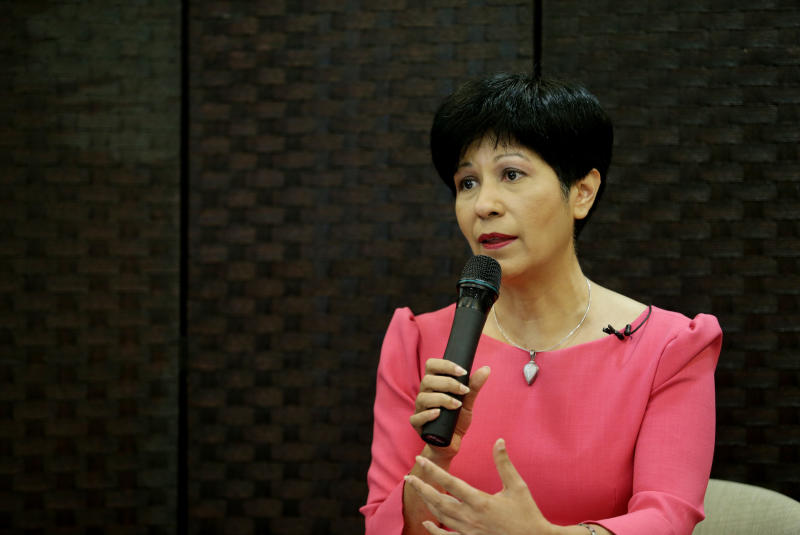New inter-agency task force to help uplift children from disadvantaged homes
Sign up now: Get tips on how to help your child succeed

Second Minister for Education Indranee Rajah will be heading an eight-member inter-agency task force that aims to help children from disadvantaged homes level up.
PHOTO: LIANHE ZAOBAO
SINGAPORE - At the primary school level, about 1.1 in 1,000 pupils are absent from school 60 days or more in a year without valid reasons. At the secondary school level, this rises to 7.5 in 1,000 students. Many of these students with patchy attendance come from disadvantaged homes.
School absenteeism and the causes underlying it are among the issues that a new inter-agency task force will study to help children from disadvantaged homes level up.
Called Uplift, short for Uplifting Pupils in Life and Inspiring Families Taskforce, the eight-member task force headed by Second Minister for Education Indranee Rajah comes in the midst of an ongoing debate on social equality.
At a press briefing last Friday (Oct 26), Ms Indranee noted that several international studies, including a recent Organisation for Economic Cooperation and Development (OECD) report, have shown that Singapore is among the top in the world when it comes to educational mobility.
But even as the system "lifts up the majority, there are those who are left behind", and the Government wants to ensure that they are given help to do better.
She said the panel did not want to give a "hard definition" for children coming from disadvantaged backgrounds, but highlighted how there is a correlation between academic performance and the socio-economic background of their families.
"So we will be looking at the bottom 20 per cent, but we will also include children from the lower 30 per cent, even 40 per cent," she said, adding that the panel will be focusing on children in pre-schools and early primary years, as research shows that it is especially critical to intervene in the child's early years to give them a good start in life.
-
Taskforce members
Ms Indranee Rajah, Second Minister for Education and Finance (chairman)
Mr Zaqy Mohamad, Minister of State for National Development and Manpower
Mr Sam Tan Chin Siong, Minister of State for Foreign Affairs & Social and Family Development
Associate Professor Muhammad Faishal Ibrahim, Senior Parliamentary Secretary for Education & Social and Family Development
Ms Low Yen Ling, Senior Parliamentary Secretary for Education and Manpower
Ms Lai Wei Lin, Deputy Secretary (Policy) for Education
Dr Lee Tung Jean, Deputy Secretary for Social and Family Development
Mr Eugene Leong, chief executive of the Early Childhood Development Agency
"These students have the potential to do so much better, and we want to help them achieve that potential. To do so, we must ascertain the gaps and identify what exactly is preventing them from doing well," she said, adding that besides tackling school absenteeism, the task force will also be looking at ways to shore up the motivation and confidence of these students.
The panel will also look into stepping up parent outreach and parenting programmes to empower less-privileged families.
She said the panel - which includes Mr Sam Tan, Minister of State for Social and Family Development, and Mr Zaqy Mohamad, Minister of State for National Development and Manpower - will release its recommendations in the second quarter of next year.
A key piece of the panel's work is consulting with those in the front line of working with disadvantaged children and their families, including school teachers, social workers, self-help groups and community partners.
Following the engagement sessions, Uplift will hold sessions with the community to brainstorm and come up with solutions.
The recommendations that are implemented will be tracked and evaluated over a one- to two-year period to ensure they are effective.
Mr Tan, who sits on the Chinese Development Assistance Council, said reaching out to parents is important, as they play a crucial role in their children's development.
He said: "When children have nurturing caregivers and a conducive environment at home, they are likely to be more engaged in their learning in school and at home."
Mr Zaqy, who is deputy chairman for self-help group Mendaki, said that although there are many programmes to help disadvantaged families, it is important to strengthen the "last-mile service delivery", referring to social service delivery on the ground, so families who require support can access it more easily.


